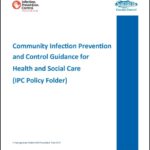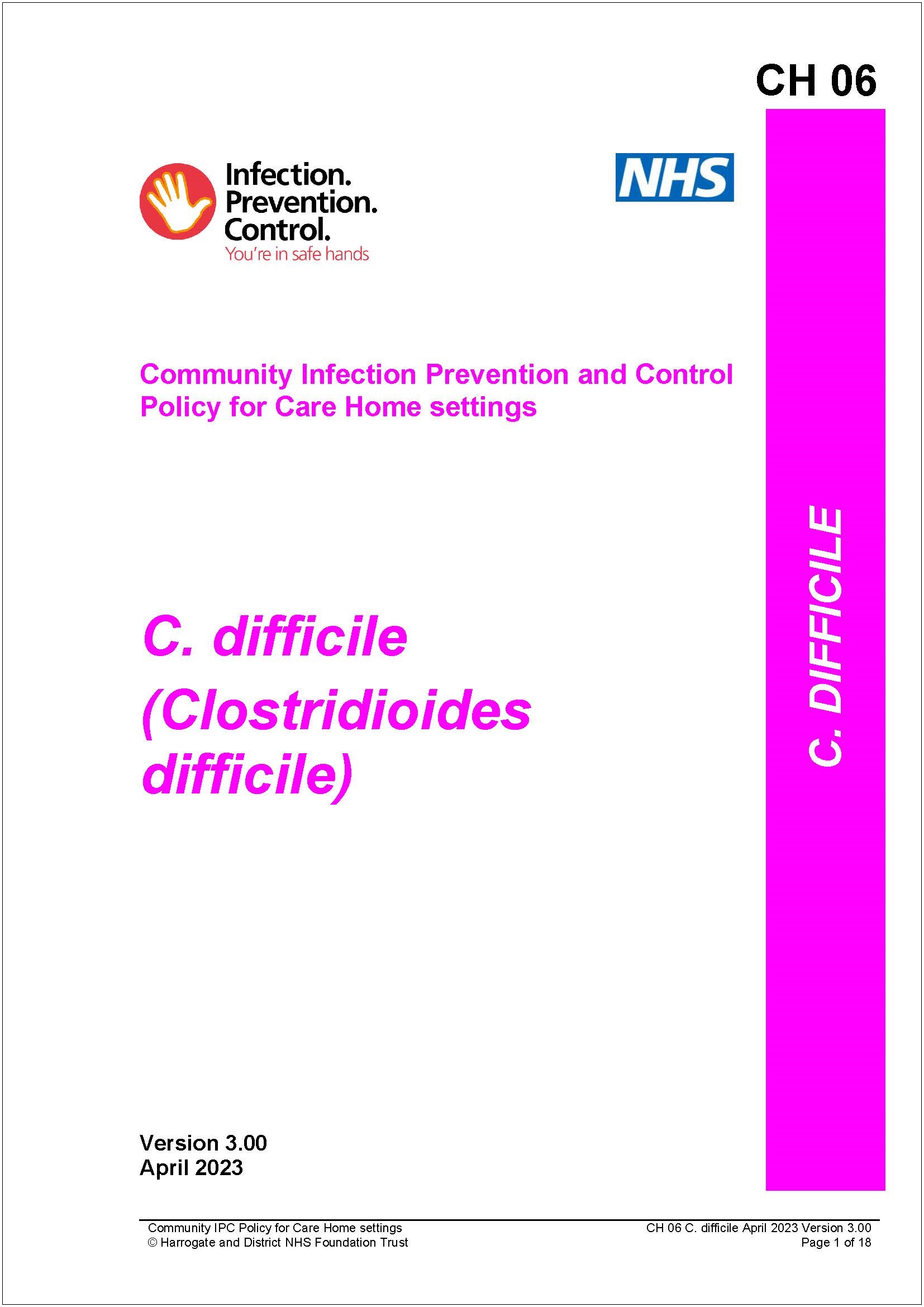Clostridioides difficile (formerly known as Clostridium difficile) is a bacterium which produces spores that are resistant to air, drying and heat. The spores survive in the environment and are the main route of spreading the Clostridioides difficile (C. difficile).
C. difficile is present harmlessly in the gut (bowel) of 3-5% of healthy adults as part of their normal gut flora. However, when antibiotics are given for an infection, they kill off some of the good bacteria in the gut, which leaves room for C. difficile to multiply rapidly, producing toxins causing diarrhoea. The presence or absence of these toxins is detected in the Laboratory as part of the C. difficile testing process.
In the majority of residents, the illness is mild and a full recovery is usual. Elderly people, often with underlying illnesses may, however, become seriously ill.
A downloadable Community Infection Prevention and Control (IPC) Policy which can be adopted as a Policy by your organisation is available below. Alternatively, a complete set of IPC Policies for Care Home settings is available to purchase @ £89.99, including postage – details can be found on the flyer and resource order form.
Page updated: 03/05/2023
Care Home Order Form
